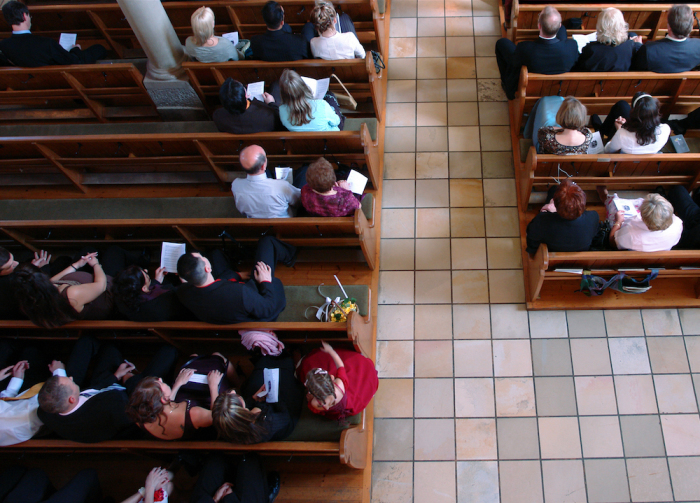Only two-thirds of self-identfied Christians think everyone sins

A significant number of Christians reject basic teachings about sin, according to a new survey, which one prominent Evangelical researcher views as a “bodyblow” stemming from American churches’ failure to address the topic.
The Cultural Research Center at Arizona Christian University released the eighth installment of its 2025 “American Worldview Inventory” on Thursday, which features data based on responses collected from 2,000 United States adults in May 2025.
An overwhelming majority of respondents (84%) agreed that “sin exists” and “it is real.” Majorities of all major religious subgroups examined subscribed to this belief, with acknowledgment of sin’s existence highest among theologically-identified born-again Christians (99%), followed by those who attend a Protestant church (97%), self-identified Christians (95%) and respondents who attend a Catholic Church (94%). Even most self-identified non-Christians (61%) acknowledged the existence of sin.
However, respondents were significantly less likely to agree with a statement declaring “I am a sinner.”
A large majority of theologically identified born-again Christians (74%) conceded that they were sinners, along with smaller majorities of Protestants (66%) and self-identified Christians (60%). About half of Catholics (50%) said they were sinners, while less than half of self-identified non-Christians (36%) did.
When asked if they agreed that “everyone has sinned,” 85% of theologically-identified born-again Christians answered in the affirmative, along with 73% of Protestants, 66% of self-identified Christians and 57% of Catholics. Less than a quarter of self-identified non-Christians (23%) maintained that everyone has sinned.
George Barna, a veteran pollster who founded The Barna Group and is now the director of research at the Cultural Research Center, attributed the lack of unanimous belief in Christian views about sin to the lack of discussion about the topic at American churches.
“The job of the local church is to educate people about God’s ways,” he said. “Yet, a 2019 Pew Research study that analyzed sermon content across the nation determined that just 3% of all sermons preached even mentioned sin. That’s a devastating bodyblow to the Church world.”
“Students will remain ignorant when their teachers fail to inform them of critical information and consequences,” he added. “For an overwhelming majority of Christian churches to suppress the reality of sin, its consequences, and its solutions from the people those churches serve is a travesty.”
Barna described “taking refuge in the idea that other people have a sin problem, but they personally do not” or that “sin is an outdated concept” as “harmful strategies.”
“Parents, pastors and religious influencers have a vital responsibility to keep basic biblical truths before the Christian body, including the reality of sin and its repercussions,” Barna said.
“Allowing Americans to skirt around the personal implications of sinful living is a major disservice to the people they influence, and facilitates the continuing demise of American society,” he concluded.
Maintaining that “sin is not a difficult concept to understand or identify,” Barna said that “avoidance of teaching and accountability regarding sin can be quickly and easily rectified by those who seek to add value to the spiritual journey of the people they influence.”
“Inserting sin back into the national consciousness would be an invaluable investment into who we are as a nation and as the Church,” Barna said.
Although at least half of every Christian subgroup subscribed to basic Christian teachings about sin, most also agreed with the premise that “Sin is real, but people are basically good at heart.”
Among those who believe sin exists and is real, 70% embrace the idea of the basic goodness of humanity. This view is most prevalent among Catholics who believe in sin (82%), followed by self-identified Christians (72%), theologically-identified born-again Christians (70%), Protestants (66%) and self-identified non-Christians (65%).
“Describing all people as ‘basically good at heart’ is the culturally-comfortable dismissal of sin that millions of people use to ignore the possibility that their love affair with disobedience to God is a life-threatening spiritual disease with eternal consequences,” Barna stated.
Ryan Foley is a reporter for The Christian Post. He can be reached at: ryan.foley@christianpost.com
















